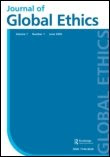Global Studies and International Relations: mutual bedfellows or contesting paradigms?
Merton College, University of Oxford,
1st – 3rd September 2010
Confirmed Keynotes:
Prof. David Chandler (University of Westminster)
Prof. Martin Shaw (University of Sussex)
Prof. Sandra Halperin (Royal Holloway, University of London)
Prof. John Urry (University of Lancaster)
The nation-states, statesmen, civilizations and empires that constitute the traditional units of analysis in International Relations no longer seem to adequately capture the cascading interconnectedness and so-called fluid processes of the globalizing world. If relations between nations dominated 20th century understanding of world events, it may now be the case that Global Studies offers new sets of vocabularies, new conceptions of relationships and better ways of imagining the complexities of 21st century world social relationships.
Nevertheless nation-states still exist. They are still powerful actors and they are still a pervasive way of categorizing, quantifying and understanding human behaviour – both in the theoretical attitude of the academic and the attitude of individuals making sense of their worlds. Power politics has not disappeared with the rise of the ‘global’, nation-states still have standing armies and the relations between them still determines the living conditions of great populations. Most recently, it is states that have shored up the faltering global economy.
The 2010 GSA conference seeks to probe the relationship between these two different approaches to understanding world social relationships. Indeed, is the advent of Global Studies an extension of International Relations, on a continuum with it, or does Global Studies represent what Foucault termed a new episteme, with the implication that International Relations and Global Studies cannot speak to each other for lack of a common language? Moreover, can Global Studies challenge the dominance of International Relations in both social science departments and policymaking fields? Or will global ‘outlooks’ still depend upon visible territorial borders, the outcome of historical and territorial conflicts between states.
In sum, the Global Studies Association conference 2010 will offer a rare opportunity, and intimate setting, for scholars from both IR and those working under the umbrella of Global Studies to engage in debates concerning the very foundations of their respective disciplines, in order to address the possibility of a more mutual understanding of the world. The intention is to establish a creative and progressive forum that will benefit researchers from all relevant disciplines. To this end we invite papers that address the conference theme and can include, but not be limited to, the following areas:
*International Law.
*Risk Society and Network Society.
*Conceptions of inside and outside.
*The transformation of (state) borders.
*The empowerment of the global individual and non-state entities.
*The importance of transnational and hybrid identities.
*Changing ideas of nationalism and citizenship and ramifications for IR.
*The European Union and ideas of regionalisation.
*Global ‘terror’ and international war.
*The making of place, the imagining of life worlds.
*International and the global: continuum or epistemic break?
*Global Studies and IR: methodological issues.
*Teaching International Relations and Globalization in the university.
*Theoretical approaches: possibilities for disciplinary alignments?
Proposals for papers should take the form of a 300 word abstract and may be submitted on any aspect of the conference theme. The organisers will allocate papers to an appropriate panel.
The deadline for submission of abstracts is 30th April 2010. Abstracts should be submitted to:
abstracts@criticalglobalisation.com.
WWW.CRITICALGLOBALISATION.COM
skip to main |
skip to sidebar



